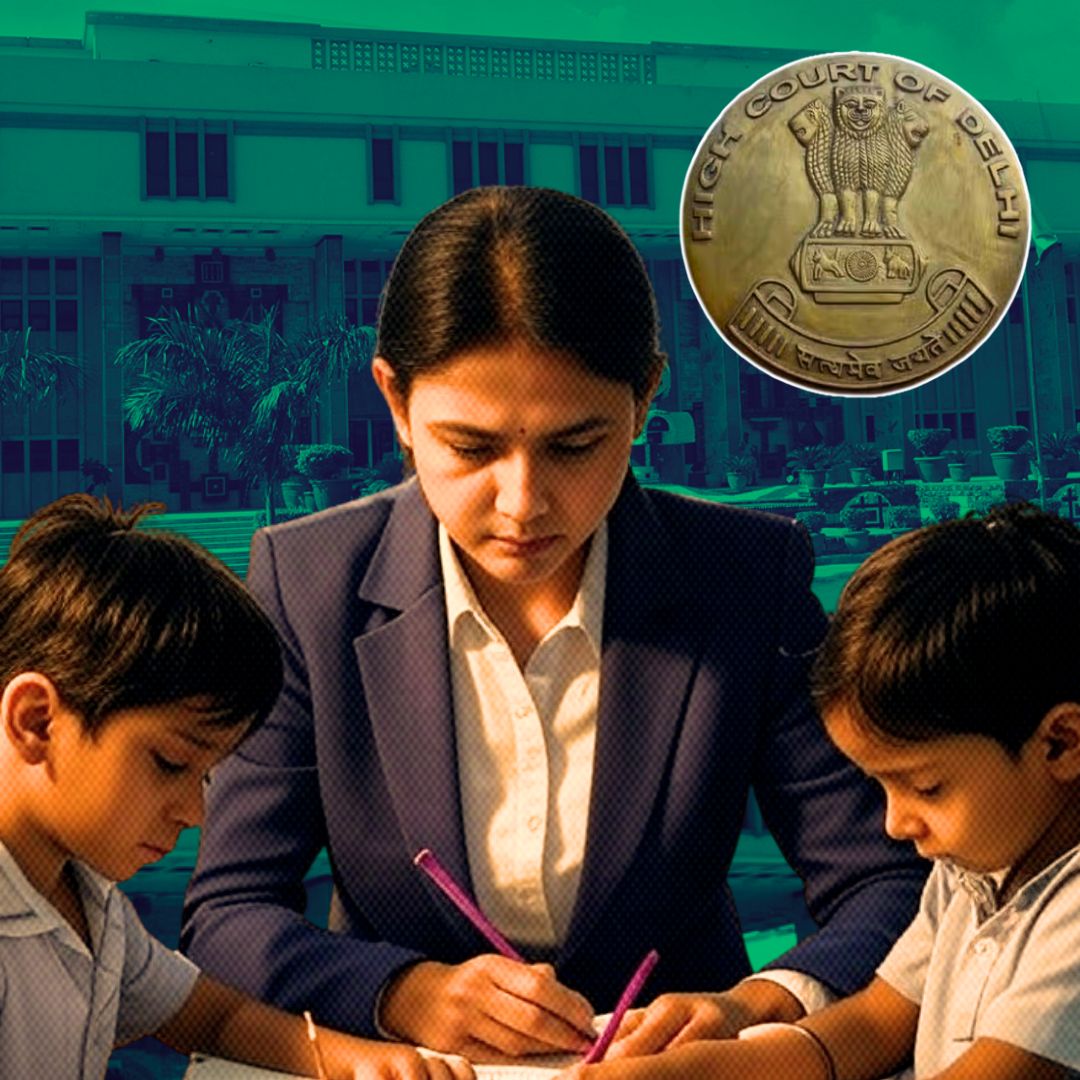On May 13, 2025, the Delhi High Court delivered a landmark judgment stating that a divorced mother, even if previously earning, is not obligated to share the financial responsibility for her child’s maintenance if she is the custodial parent and has left her job due to caregiving duties.
The court ordered the father to bear the full cost of the child’s upkeep, rejecting his plea for equal sharing. Legal experts have largely welcomed the ruling for its progressive stance, while the decision has sparked widespread debate on social media regarding fairness, gender roles, and the realities of single parenting.
Court Prioritises Child’s Welfare and Recognises Parental Sacrifice
The case involved a couple who married in 2016 and separated in 2017, with the mother retaining custody of their minor child. The mother, a former government school teacher, resigned from her position in 2022, citing the overwhelming demands of single-handedly raising a child without family support. The father, a practising advocate, argued that the mother should contribute financially, given her previous employment.
In its detailed order, the Delhi High Court emphasised that the emotional and psychological labour of caregiving is immense and often goes unrecognised. “These psychological and emotional burdens cannot be calculated or addressed through a mere mathematical formula,” the court observed.
The judgment made it clear that maintenance is not a punitive measure against the father but a legal and moral obligation to ensure the child’s well-being. The court directed the father to pay Rs 12,000 per month, with Rs 4,500 specifically allocated for the child’s expenses.
Legal experts have praised the decision. Senior advocate Fazl Askari noted, “This ruling is a step forward in acknowledging the invisible labour custodial parents—often mothers—undertake, and it rightly places the child’s welfare at the centre of maintenance laws.” Another family law expert, Aditya Chopra, added, “It’s a reminder that the law must adapt to reflect the lived realities of families, not just theoretical income calculations.”
Context: Legal Arguments, Social Impact, and Public Debate
The legal battle began when the family court initially ordered the father to pay interim maintenance, a decision he challenged on the grounds of his limited income and the mother’s earning potential. The mother’s legal team argued that her resignation was not voluntary but compelled by the lack of support and the demands of raising a young child alone.
The High Court, after reviewing the circumstances, found her explanation reasonable and highlighted the disproportionate caregiving burden often borne by single parents.
The judgment comes at a time when India is witnessing increased discussions about gender roles, parental responsibilities, and the challenges of single parenting. Social media platforms, especially X (formerly Twitter), have seen heated debates.
Some users argue that the ruling is fair and long overdue, recognising the sacrifices of custodial parents. Others express concerns about potential misuse and the need for fathers’ rights to be considered equally. The court, however, clarified that its ruling is not about gender but about the best interests of the child and the realities of caregiving.
The order also reiterates that maintenance is meant to ensure the child’s right to dignity, opportunity, and continuity in life, and is not a form of charity or punishment. The court’s recognition of unpaid caregiving labour as a significant contribution to a child’s upbringing is being hailed as a progressive step by women’s rights groups and child welfare advocates.
The Logical Indian’s Perspective
The Delhi High Court’s ruling is a welcome affirmation of the value of caregiving and the importance of prioritising the child’s best interests in maintenance cases. By acknowledging the invisible yet invaluable work custodial parents do, the court has set a precedent for empathy, fairness, and child-centric family law.
The Logical Indian believes that legal systems must continue to evolve, ensuring that both financial and emotional contributions of parents are recognised and supported. This case also highlights the need for broader societal support for single parents, including workplace flexibility, accessible childcare, and community networks. As we move forward, it is essential to foster dialogue and understanding, ensuring that maintenance laws are applied with empathy and fairness to all parties involved.
How can our legal and social systems better support single parents—both mothers and fathers—in balancing professional and parental responsibilities?












